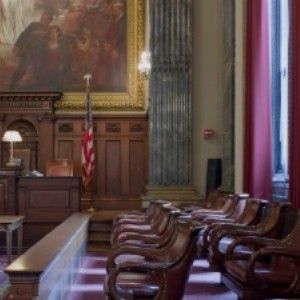Yehudi Manzano
Case Summary
United States District Court
District of Connecticut
Case No. 3:18-cr-095 (SRU)
judge in criminal trial allows defense to pursue jury nullification by informing jurors of mandatory minimum penalty if they convict

Significant litigation regarding jury rights has recently developed in a criminal case currently in progress in federal court. At issue is a federal judge's decision to allow a defense attorney to argue for conscientious acquittal by jury nullification to some degree to his client's jury.
In May 2018, Yehudi Manzano was indicted and arrested for production of child pornography (18 U.S.C. § 2251(a)), punishable with a mandatory minimum sentence of 15 years in prison, and transportation of child pornography (18 U.S.C. § 2252A(a)(l)), punishable with a mandatory minimum sentence of 5 years in prison.
The defense is arguing that the mandatory minimum is so unduly harsh in the particular case at hand that the jury should not be asked to pass judgment without being aware of the potential consequences of their verdicts. Defense counsel Norm Pattis filed a Motion to Permit Counsel to Argue Jury Nullification. It reads in part:
"The defendant seeks permission to make the jury aware of the penalty, and to argue that Government’s application of the law to the particular facts of this case is an obscene miscarriage of justice. While the Government may well be able to prove the elements of the offense, the conduct at issue here, while perhaps not innocent, is in no way so sinister as to warrant such a penalty."
Defense attorney Pattis argued in court that:
"Juries exist for a reason. They stand between the government and the accused, and they provide the accused with an opportunity to hold the government to its burden of proof. And in certain trials in our history, juries have done more than that. They've said the law is wrong, and we, the people, say it's wrong. A jury sits as the consciousness of the community almost as an ad hoc referendum on government conduct. I'm unaware of any case that said that cannot happen. The only case from the United States Supreme Court that I'm aware of said I'm not entitled to a charge. That case is a hundred thirty years old.
You have seen on the bench the grotesque misapplication of the commerce clause in our lifetime. Prior to the 1930s and '40s it was rarely used in the manner in which it's used now. The United States Supreme Court has twice had to roll back commerce clause applications in the Morrison case, as to the gun-free school zone — or, excuse me the Violence Against Women's [sic] Act, and in the Lopez case as to the gun-free school zone case. This may be the third case, where an isolated act, in a moment in time, is used to leverage the commerce clause into a 15-year sentence.
Judge, this is just wrong. I've been doing this—defending people accused of crimes for 25 years. This is the first time I've walked into a court and felt soiled by the process. For me to stand by silently and permit this to happen to Mr. Manzano and not to alert the jury of what's really at stake in this case in my view is a miscarriage of justice. I'm asking you for permission to let this jury know what's going on in this courtroom, because if you don't, they won't."
The response was nothing short of extraordinary. Judge Stefan R. Underhill openly stated in court during a hearing on the motion:
"This is a shocking case. This is a case that calls for jury nullification. I have been told by the Second Circuit that I cannot encourage jury nullification, and I do not intend to encourage jury nullification. But I am absolutely stunned that this case, with a 15-year mandatory minimum, has been brought by the government.
I am going to be allowed no discretion at sentencing to consider the seriousness of this conduct or the lack of seriousness of this conduct, and it is extremely unfortunate that the power of the government has been used in this way, to what end I'm not sure.
So the law precludes me from charging the jury, the law precludes me from encouraging the jury, and I don't intend to do that. But if the evidence comes in about the length of the sentence, or if Mr. Pattis chooses to argue, I do not feel that I can preclude that. I don't feel I'm required to preclude that. And I think justice requires that I permit that. So it's not going to come from me, but I think justice cannot be done here if the jury is not informed, perhaps by Mr. Pattis, that that's the consequence here."
The trial has been stayed while the prosecution attempts to get the judge's decision reversed before the jury hears any argumentation in court. Amicus briefs have been submitted by the Fully Informed Jury Association and several other parties in opposition to overturning the judge's decision. It is our understanding that while they have been submitted, the briefs have not yet been accepted by the court. Oral arguments were heard in this matter in the second week of February 2019, but no decision has yet been made.
Case Documents
-
Estimated Convictions Obtained by Plea Bargain
97%
-
Extra Punishment for Refusing a Plea Deal
64%
-
Rank of U.S. in Incarceration
1
-
Years FIJA Has Fought for Jury Rights
36


